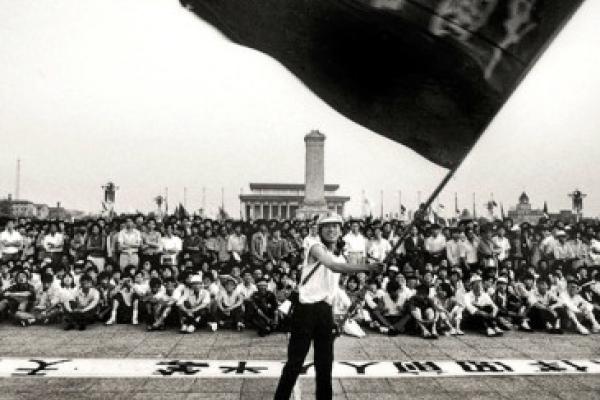While last month marked the 25th anniversary of China’s silencing freedom in Tiananmen Square, this month China has been cementing this grim legacy — particularly regarding religious freedom.
During the just-concluded month of Ramadan, China denied Uighur Muslim students, teachers, professors, and government employees the freedom to fast and fulfill related duties. With Ramadan coinciding this year with the commemoration of the Communist Party’s founding, Chinese authorities used the occasion to identify fasting Muslims, particularly in Xinjiang province. Those defying the ban have been subject to threats, detention, and arrests.
In recent years, officials have shut down religious sites; conducted raids on independent schools, leading to multiple injuries and even deaths; confiscated religious literature; restricted private study of the Quran; monitored the sermons of imams and forced them to undergo political training; restricted Muslim dress and religious expression; banned children from being brought to mosques; and arbitrarily deemed religious gatherings and activities “illegal.”
In neighboring Tibet, religious freedom conditions for Buddhists are deteriorating. Since May 2011, more than 130 Buddhists, including at least 61 monks, nuns, and former nuns, have immolated themselves. Their desperate protests are tied directly to Beijing’s brutal repression of Tibetan religious practice and culture.
Beijing also continues its relentless 15-year campaign to obliterate the Falun Gong, maintaining an extrajudicial security apparatus, the 6-10 Office, to further that aim. There have been reports of deaths in custody, the use of psychiatric experiments and the harvesting of organs.
And China continues to persecute Christians.
Catholic and Protestant groups refusing to register with the government face arrests, fines, and the shuttering of their churches. China’s government has issued a chilling directive to “eradicate” unregistered Protestant churches over the next decade. In January and March, officials seized 20 members, including the pastor, of the Holy Love Fellowship, an unregistered home church in Beijing, detaining them in space set aside for violent criminals.
Since January, China’s Christians have confronted an ominous new threat to worship and practice — governmental targeting of registered churches and their leaders. In Zhejiang province, where Christianity has grown dramatically, the government has targeted more than 100 churches, demolishing dozens, forcing others to make major alterations and removing steeples and crosses. In April, authorities bulldozed the Sanjiang Church, which housed a congregation numbering in the thousands.
The 12-year prison sentence of a pastor marks a chilling turn for the worse in an already bleak scene. China’s appalling religious freedom record underscores the obvious: Little has changed since Beijing shamed itself before the world 25 years ago, massacring its own people for the “crime” of demanding their rights.
China’s leaders undoubtedly believe — as did their predecessors — that repression and fear will solidify their control and bring security. They are mistaken. By denying the bedrock freedoms of conscience and religion, China risks more restiveness and instability.
If China is to assume a truly honored place among the community of nations, its leaders must reject the dark ways of repression and embrace the light of liberty for all.
Katrina Lantos Swett serves as chair of the U.S. Commission on International Religious Freedom. M. Zuhdi Jasser serves as a USCIRF commissioner. Via RNS.
Image: A man waves a flag in May 1989 at China’s Tiananmen Square. Creative Commons image by Robert Croma
Got something to say about what you're reading? We value your feedback!
